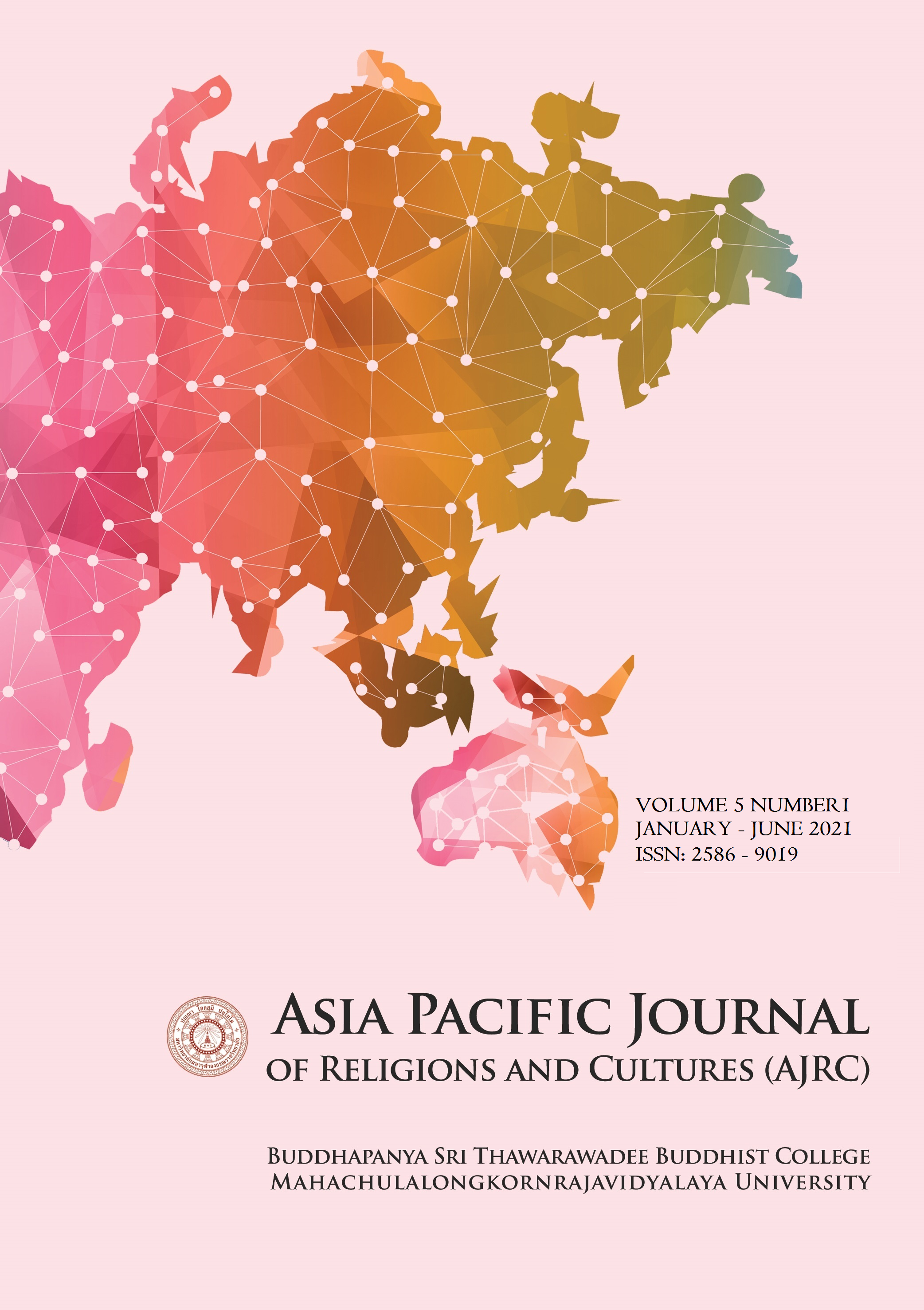The The Effect of a Non-formal Education Process with Contemplative Learning Approach to Enhance Purposes in Life for Thai Bachelor’s Degree Students
Main Article Content
Abstract
The objective of this action research is to study the effects of a non-formal education process with a contemplative learning approach to enhance purposes in life for Bachelor’s Degree Students. The target group was the first-year undergraduate students from all faculties of Sakon Nakhon Rajabhat University. The sampling method was a voluntary selection. The quotas were given to 6 faculties of Sakon Nakhon Rajabhat University; 4 for each faculty which became 24 students in total. The results of the study showed learning outcomes in 4 areas, namely 1) realizing their potential, 2) finding life goals that meet their needs, 3) practicing learning planning and design skills, and 4) being inspired from their action to follow their purpose. The result suggested that the learning process organizers should give students freedom to choose their own area of development, based on their interests, and focus on connecting the learning experience with the student's internal growth.
Article Details
References
Baik, C., Larcombe, W., & Brooker, A. (2019). How universities can enhance student mental wellbeing: the student perspective. Higher Education Research and Development, 38(4), 674–687.
https://doi.org/10.1080/07294360.2019.1576596
Barbezat, D. & Pingree, A. (2012). Contemplative Pedagogy: The Special Role of Teaching and Learning Centers. In James E. Groccia and Laura Cruz (Eds.), To Improve the Academy, 31, 177-191. San Francisco: Jossey-Bass.
Bronk, K. C. (2012). A grounded theory of the development of noble youth purpose. Journal of Adolescent Research, 27(1), 78-109. doi:10.1 177/074355841 1412958
Bronk, K.C. (2016). Purpose in life: A critical component of optimal youth development. Place of publication not identified: SPRINGER. doi:10.1007/978-94-007-7491-9.
Chongvisal, R., & Boonyarit, I. (2018). An action research approach towards development of spirituality among Thai University Students. Journal of Behavioral Science, 13(2), 19–37.
Covey, S. R. (1989). The 7 Habits of Highly Effective People. New York: Simon & Schuster.
Damon, W., Menon, J., & Bronk, K.C. (2003). The development of purpose during adolescence. Applied Developmental Science, 7(3), 119-128.
Damon, W. (2009). The why question: Teachers can instill a sense of purpose. Education Next, 9(3), 84.
Grace, F. (2011). Learning as a Path, Not a Goal: Contemplative Pedagogy – Its Principles and Practices. Teaching Theology & Religion. 14(2): 99-124.
Havighurst, R. J. (1972). Developmental tasks and education. (3rd ed). New York: Longman.
Lincharoen, A. (2012). Techniques for qualitative data analysis. Journal of Education Mahasarakam University, 17(1): 17-29.
Loeng, S. (2020). Self-directed learning: A core concept in adult education. Education Research International. Retrieved January 2, 2021, from https://www.hindawi.com/ journals/edri/2020/3816132/
Kemmis, S. & McTagart, R. (1990). The Action Research Planner. Geelong: Deakin University Press.
Knowles, M.S. (1970). The Modern Practice of Adult Education: Andragogy vs. Pedagogy. New York: Association Press.
Robinson, K. & Aronica, L. (2009). The Element: How Finding Your Passion Changes Everything. Penguin books.
Sakon Nakhon Rachaphat University. (2015). Philosophies, Visions and Missions. Retrieved
from https://snru.ac.th/about/
Shin, J. Y. (2013). Improving first-year intervention strategies at universities by focusing on meaning and purpose in life. Colorado State University. Retrieved from https://eric.ed.gov/?id=ED560398
Seligman, M.E.P. (2002). Authentic happiness: Using the new positive psychology to realize your potential for lasting fulfillment. New York: Free Press.
Office of the President of Sakon Nakhon Rachaphat University. (2016). Student Development Strategic Plan 2016-2019. Retrieved from http://sdd.snru.ac.th/th/
Nilchaikovit, T. & Juntrasook, A. (2016). The arts of transformative learning facilitation: A contemplative approach (2nd Ed.). Nakorn Pathom: Leadership for the Future Project.


